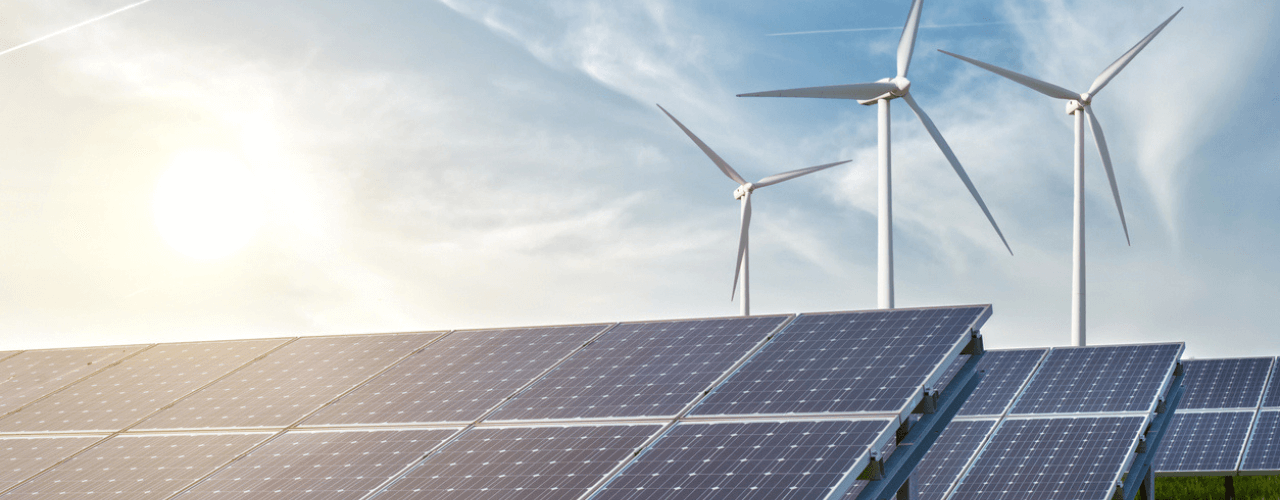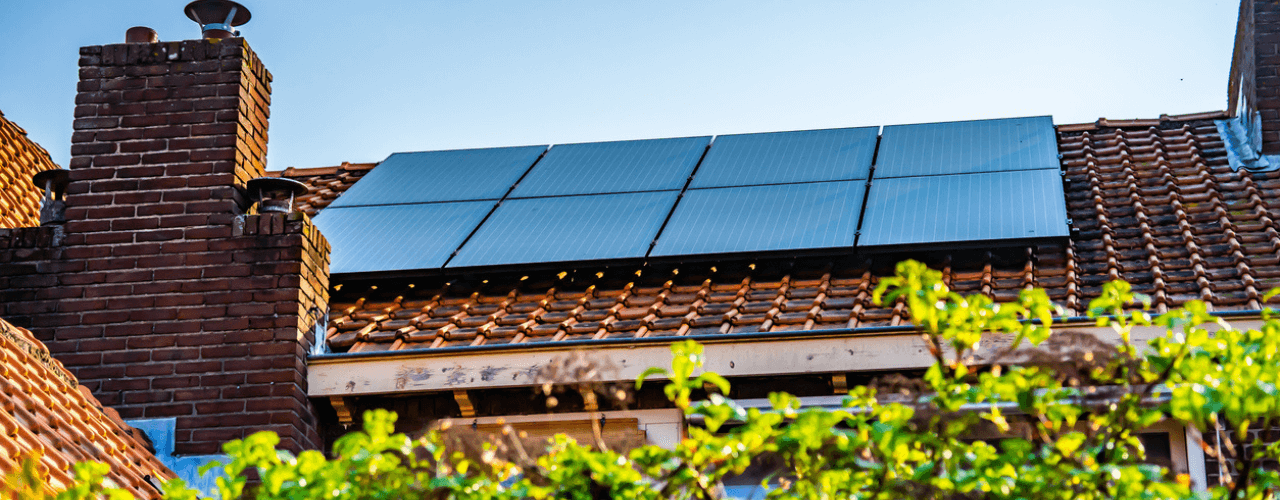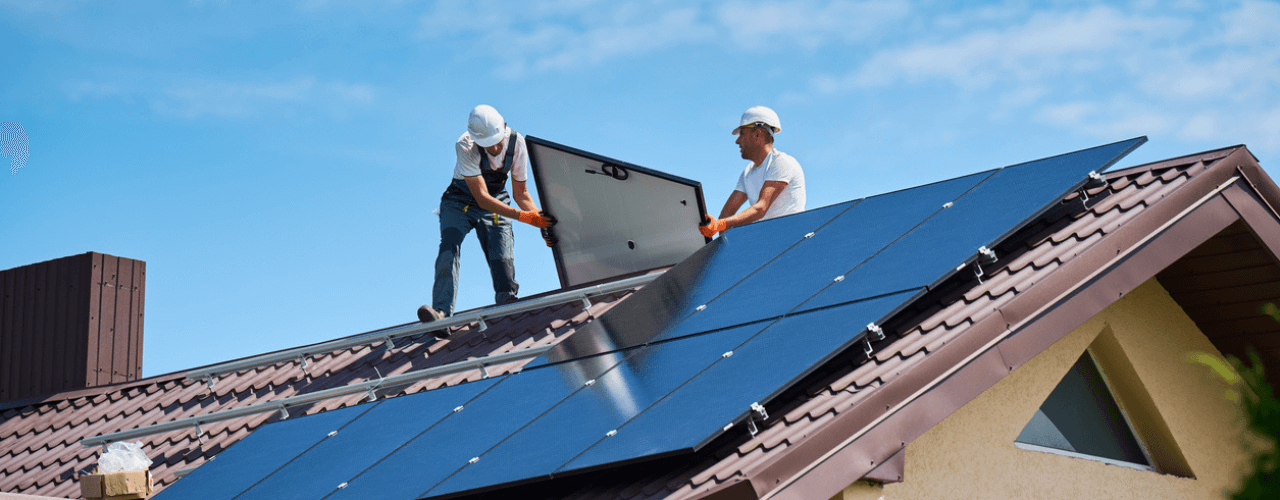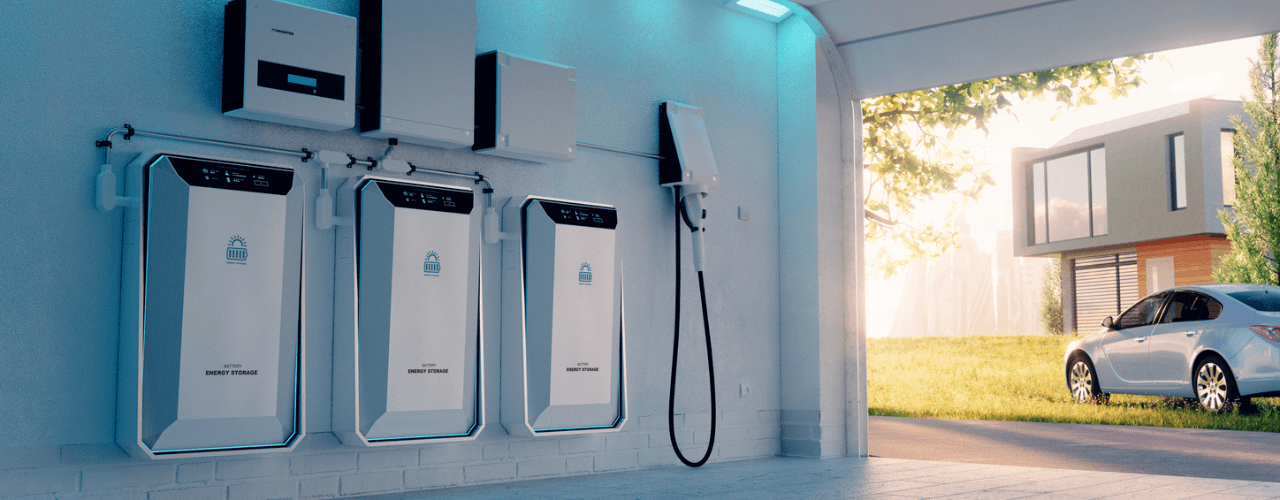
Renewable energy solutions for UK homes and businesses: What are your real options?
Energy bills keep climbing and so does the need to reduce carbon emissions. For UK...

Renewable Energy
Solar
High energy bills have become a recurring concern for homeowners and businesses alike. As utility costs continue to rise, more people are looking for ways to take control of their energy usage. One of the most effective ways to take control?
Install a solar PV tailored to your energy needs. With the right setup, solar panel technology lowers your electricity bills and contributes to long-term energy efficiency. It also supports sustainability goals and improves your energy independence.
Most people are already familiar with the basics of solar panel technology panels. But what often gets missed is just how much impact these systems can have on your day-to-day energy costs and wider energy strategy.
Solar PV systems work best when tailored to your property’s energy profile. Instead of sending power long distances from central power stations (which leads to energy loss), solar panel technology generates electricity right where it’s needed. Because the energy is used right where it’s produced, you waste less and get more out of every unit making it a smart, efficient way to power your property.
Tired of unpredictable bills every month? Wondering how much energy you’re wasting?
By generating your own electricity on-site, you reduce reliance on the grid. You use your solar power first and can often export any surplus for a return. Here’s how you save:
According to Good Energy, commercial solar panel technology users typically see savings of 30% to 50% on their annual energy bills. For high-usage businesses or large homes, the impact can be significant.
Getting the most from your system means understanding the parts that influence performance:
Recent advances in panel technology, such as half-cell and bifacial modules, have made systems even more efficient. Some panels can now produce more power under shaded or low-light conditions, increasing yield across the year.
Smart inverters also make it easier to spot performance issues early. That’s particularly useful for businesses where a steady power supply keeps everything running smoothly.
A well-installed system built with quality components will serve you reliably for years to come.
How much of your electricity goes to waste? Wouldn’t it make sense to use the energy you generate in a way that suits your needs?
A solar PV contributes directly to energy efficiency by generating clean energy at the point of use. Unlike grid electricity, which loses energy during transmission, solar-generated power is used where it’s generated. This cuts down waste and improves the efficiency of your energy usage overall.
Pairing solar panel technology with other smart energy upgrades also helps, such as:
Used together with solar panel technology, they help cut your overall energy use without needing to change your day-to-day routine.
While almost any property with a suitable roof can benefit, some scenarios stand out:
Developers and architects are increasingly incorporating solar panel technology into projects to meet building regulations and EPC requirements.
How long have you been putting off making a change that could lower your bills for the next 25 years?
Yes, and not just for your wallet. A solar energy system offers savings, stability, and long-term value. Key reasons solar panel technology is a smart investment include:
Return on investment usually falls between 6 and 10 years, depending on system size, usage, and available export payments. For businesses with consistent daytime energy needs, this payback period can be even shorter.
Professional installation is key. Working with MCS-certified installers ensures:
Remote monitoring apps now make it easier to track system performance and energy generation in real-time. Some systems offer automated alerts if performance drops below expected levels, allowing you to address issues before they impact savings.
To improve system longevity and output, also consider:
With energy costs climbing, carbon targets tightening, and government support available, there’s never been a better time to switch to solar panel technology. Every year you delay is another year of missed savings.
Let’s put it into perspective: what is the cost of doing nothing? If your electricity bill is £250 a month, that’s £3,000 a year money you could be investing in your own energy system instead of handing over to the grid.
And with the government’s zero VAT on solar installations for residential properties and the Smart Export Guarantee (SEG) in place, the conditions for making the switch have never been more favourable.
With a solar PV from a qualified specialist like ESS Group, you can cut costs, future-proof your energy supply, and actively support the UK’s transition to cleaner energy.
Looking to take control of your electricity bills? Contact ESS Group today and find out how a solar energy system can work for your home or business.
Yes. While output is reduced, solar panels still generate electricity on cloudy days. Modern panels are designed to work efficiently in diffuse light conditions common in the UK.
Going fully off-grid would require a much larger solar array and substantial battery storage, which is technically possible but not cost-effective for most users. Most homeowners and businesses use a grid-tied system with optional battery backup for best value.
Yes. As of now, residential installations benefit from 0% VAT, and both homeowners and businesses can receive payments through the Smart Export Guarantee (SEG) for exporting unused electricity.
High energy bills have become a recurring concern for homeowners and businesses alike. As utility costs continue to rise, more people are looking for ways to take control of their energy usage. One of the most effective ways to take control?
Install a solar PV tailored to your energy needs. With the right setup, solar panel technology lowers your electricity bills and contributes to long-term energy efficiency. It also supports sustainability goals and improves your energy independence.
Most people are already familiar with the basics of solar panel technology panels. But what often gets missed is just how much impact these systems can have on your day-to-day energy costs and wider energy strategy.
Solar PV systems work best when tailored to your property’s energy profile. Instead of sending power long distances from central power stations (which leads to energy loss), solar panel technology generates electricity right where it’s needed. Because the energy is used right where it’s produced, you waste less and get more out of every unit making it a smart, efficient way to power your property.
Tired of unpredictable bills every month? Wondering how much energy you’re wasting?
By generating your own electricity on-site, you reduce reliance on the grid. You use your solar power first and can often export any surplus for a return. Here’s how you save:
According to Good Energy, commercial solar panel technology users typically see savings of 30% to 50% on their annual energy bills. For high-usage businesses or large homes, the impact can be significant.
Getting the most from your system means understanding the parts that influence performance:
Recent advances in panel technology, such as half-cell and bifacial modules, have made systems even more efficient. Some panels can now produce more power under shaded or low-light conditions, increasing yield across the year.
Smart inverters also make it easier to spot performance issues early. That’s particularly useful for businesses where a steady power supply keeps everything running smoothly.
A well-installed system built with quality components will serve you reliably for years to come.
How much of your electricity goes to waste? Wouldn’t it make sense to use the energy you generate in a way that suits your needs?
A solar PV contributes directly to energy efficiency by generating clean energy at the point of use. Unlike grid electricity, which loses energy during transmission, solar-generated power is used where it’s generated. This cuts down waste and improves the efficiency of your energy usage overall.
Pairing solar panel technology with other smart energy upgrades also helps, such as:
Used together with solar panel technology, they help cut your overall energy use without needing to change your day-to-day routine.
While almost any property with a suitable roof can benefit, some scenarios stand out:
Developers and architects are increasingly incorporating solar panel technology into projects to meet building regulations and EPC requirements.
How long have you been putting off making a change that could lower your bills for the next 25 years?
Yes, and not just for your wallet. A solar energy system offers savings, stability, and long-term value. Key reasons solar panel technology is a smart investment include:
Return on investment usually falls between 6 and 10 years, depending on system size, usage, and available export payments. For businesses with consistent daytime energy needs, this payback period can be even shorter.
Professional installation is key. Working with MCS-certified installers ensures:
Remote monitoring apps now make it easier to track system performance and energy generation in real-time. Some systems offer automated alerts if performance drops below expected levels, allowing you to address issues before they impact savings.
To improve system longevity and output, also consider:
With energy costs climbing, carbon targets tightening, and government support available, there’s never been a better time to switch to solar panel technology. Every year you delay is another year of missed savings.
Let’s put it into perspective: what is the cost of doing nothing? If your electricity bill is £250 a month, that’s £3,000 a year money you could be investing in your own energy system instead of handing over to the grid.
And with the government’s zero VAT on solar installations for residential properties and the Smart Export Guarantee (SEG) in place, the conditions for making the switch have never been more favourable.
With a solar PV from a qualified specialist like ESS Group, you can cut costs, future-proof your energy supply, and actively support the UK’s transition to cleaner energy.
Looking to take control of your electricity bills? Contact ESS Group today and find out how a solar energy system can work for your home or business.
Yes. While output is reduced, solar panels still generate electricity on cloudy days. Modern panels are designed to work efficiently in diffuse light conditions common in the UK.
Going fully off-grid would require a much larger solar array and substantial battery storage, which is technically possible but not cost-effective for most users. Most homeowners and businesses use a grid-tied system with optional battery backup for best value.
Yes. As of now, residential installations benefit from 0% VAT, and both homeowners and businesses can receive payments through the Smart Export Guarantee (SEG) for exporting unused electricity.

Energy bills keep climbing and so does the need to reduce carbon emissions. For UK...

Commercial solar helps cut costs and hit sustainability targets both smart moves for today’s business...

Home energy habits are changing. As more people install solar panels and adopt smart technologies,...
We’re here to help with all your renewable energy needs.
Contact us today for expert advice, consultations, and support.